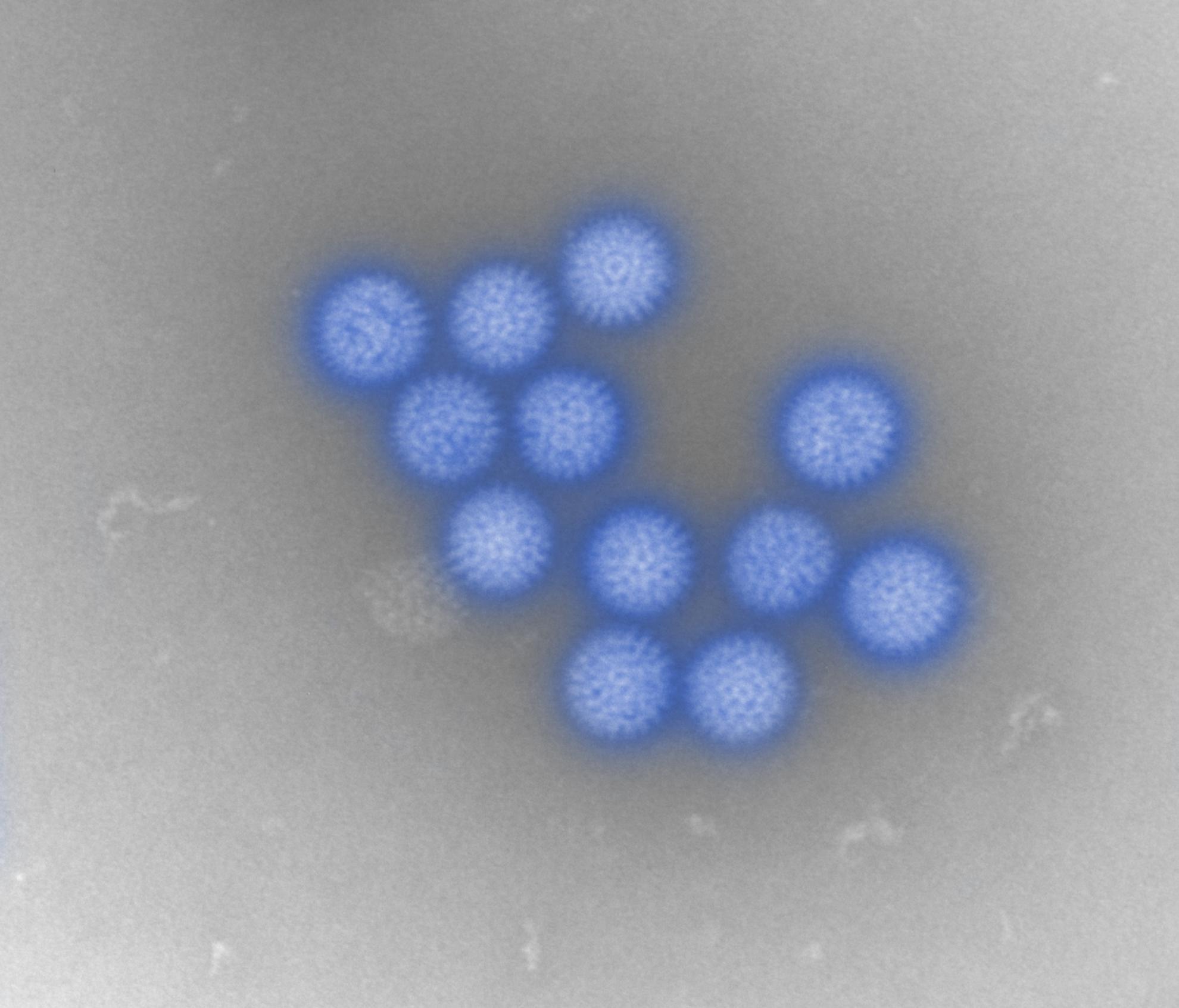Evidence for transmission of bluetongue virus serotype 26 through direct contact
The aim of this study was to assess the mechanisms of transmission of bluetongue virus serotype 26 (BTV-26) in goats. A previous study, which investigated the pathogenicity and infection kinetics of BTV-26 in goats, unexpectedly revealed that one control goat may have been infected through a direct contact transmission route. To investigate the transmission mechanisms of BTV-26 in more detail an experimental infection study was carried out in which three goats were infected with BTV-26, three goats were kept uninfected, but were housed in direct contact with the infected goats, and an additional four goats were kept in indirect contact separated from infected goats by metal gates. This barrier allowed the goats to have occasional face-to-face contact in the same airspace, but feeding, watering, sampling and environmental cleaning was carried out separately. The three experimentally infected goats did not show clinical signs of BTV, however high levels of viral RNA were detected and virus was isolated from their blood. At 21 dpi viral RNA was detected in, and virus was isolated from the blood of the three direct contact goats, which also seroconverted. The four indirect barrier contact goats remained uninfected throughout the duration of the experiment. In order to assess replication in a laboratory model species of Culicoides biting midge, more than 300 Culicoides sonorensis were fed a BTV-26 spiked blood meal and incubated for 7 days. The dissemination of BTV-26 in individual C. sonorensis was inferred from the quantity of virus RNA and indicated that none of the insects processed at day 7 possessed transmissible infections. This study shows that BTV-26 is easily transmitted through direct contact transmission between goats, and the strain does not seem to replicate in C. sonorensis midges using standard incubation conditions.
Back to publications
